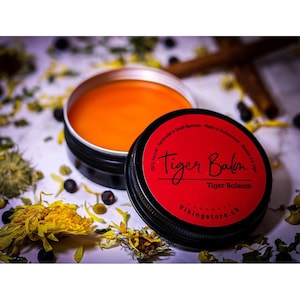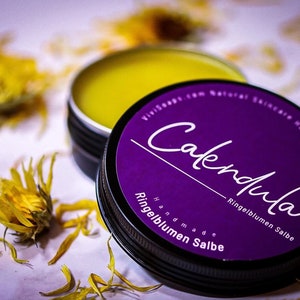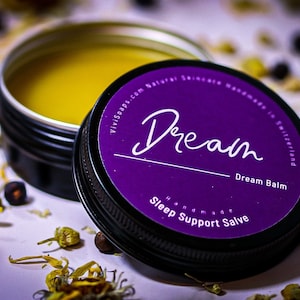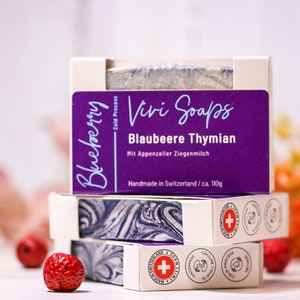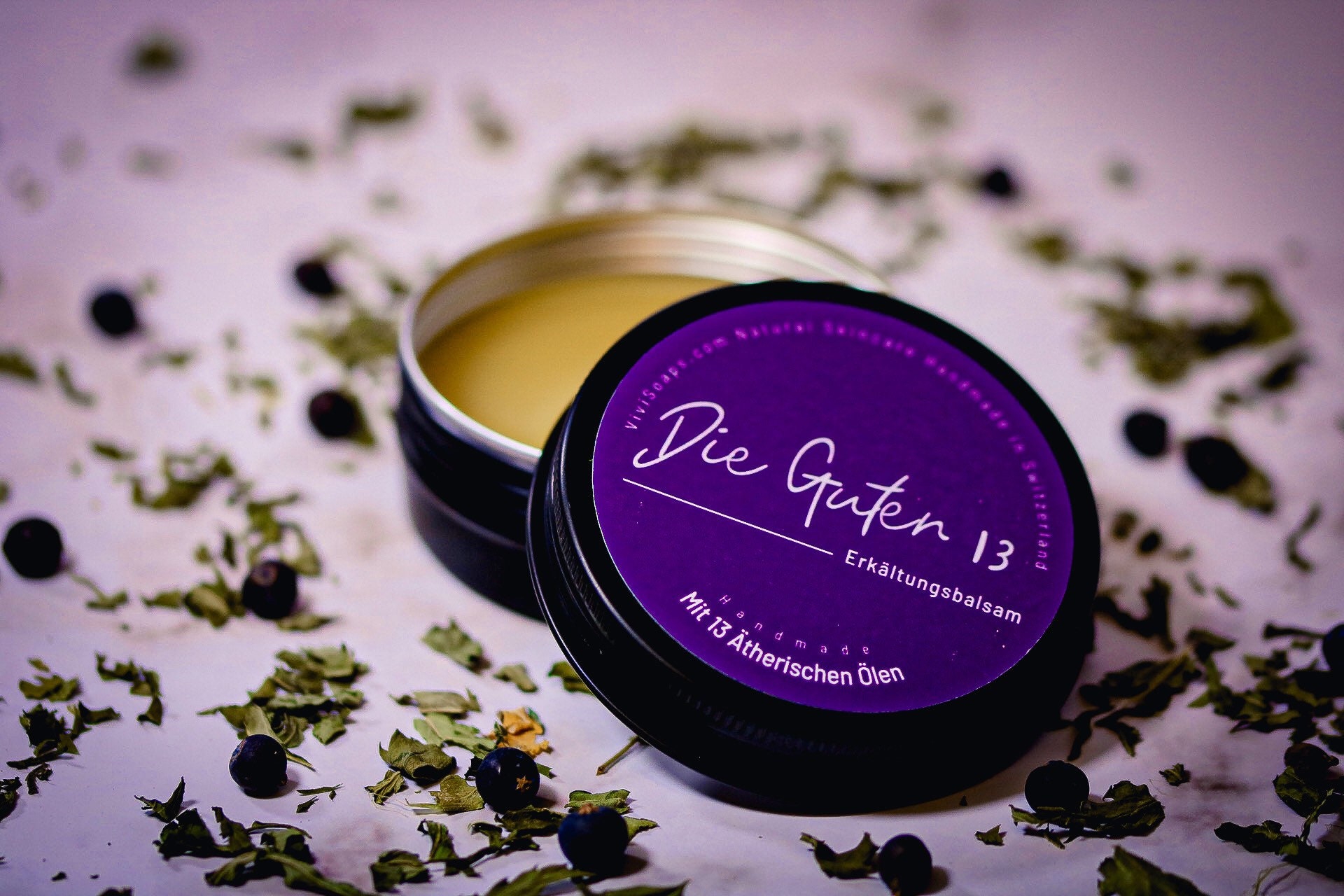
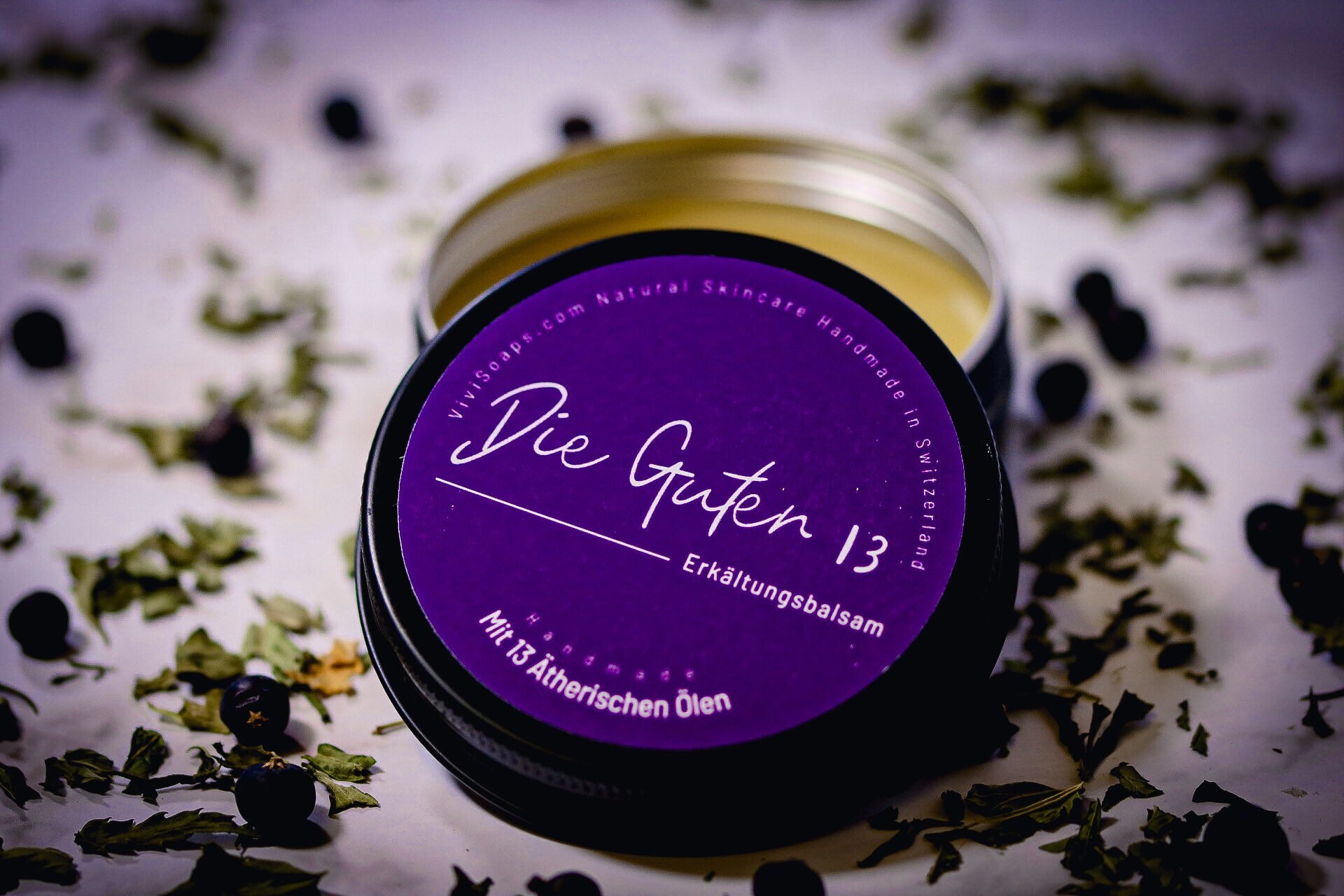
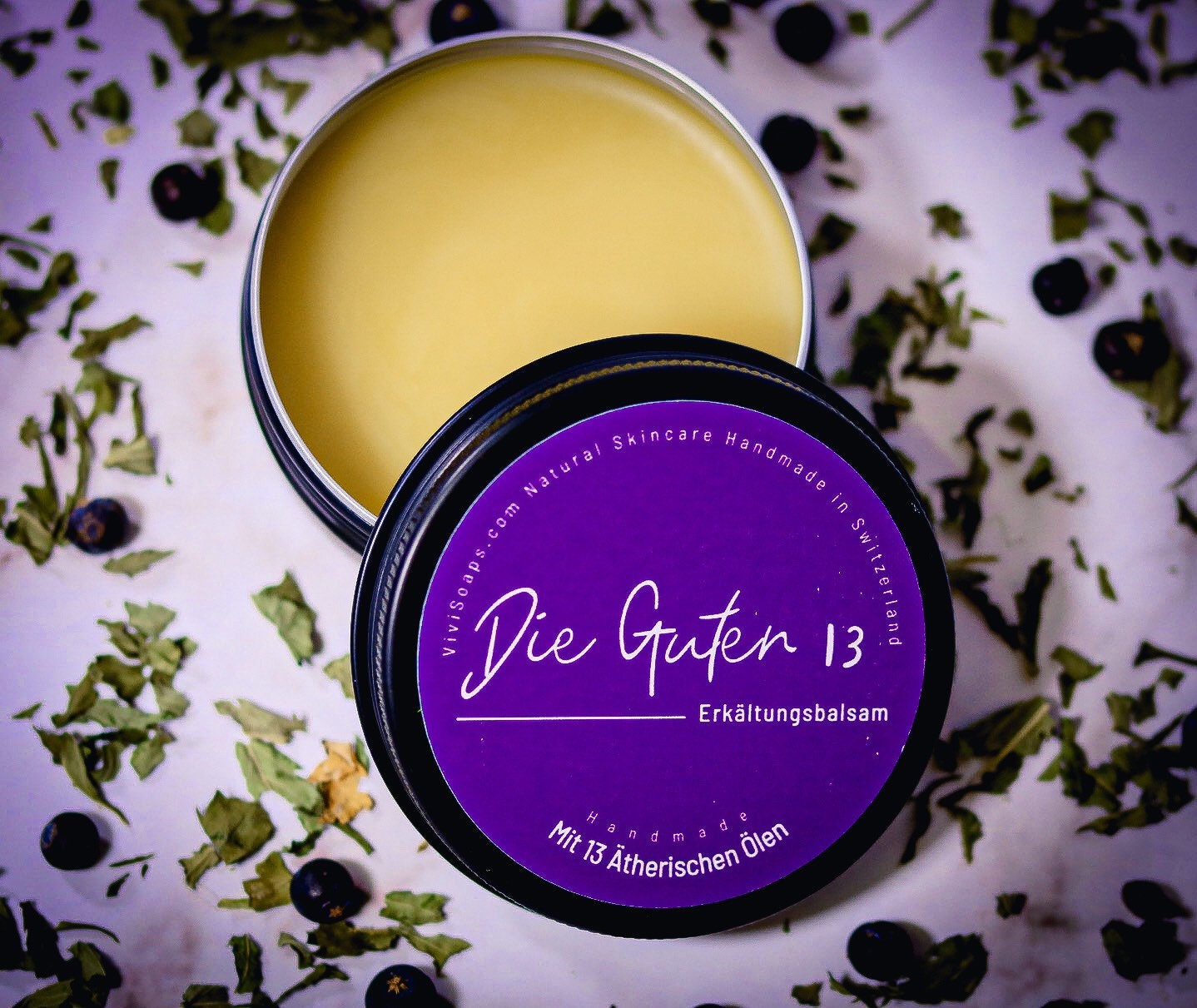
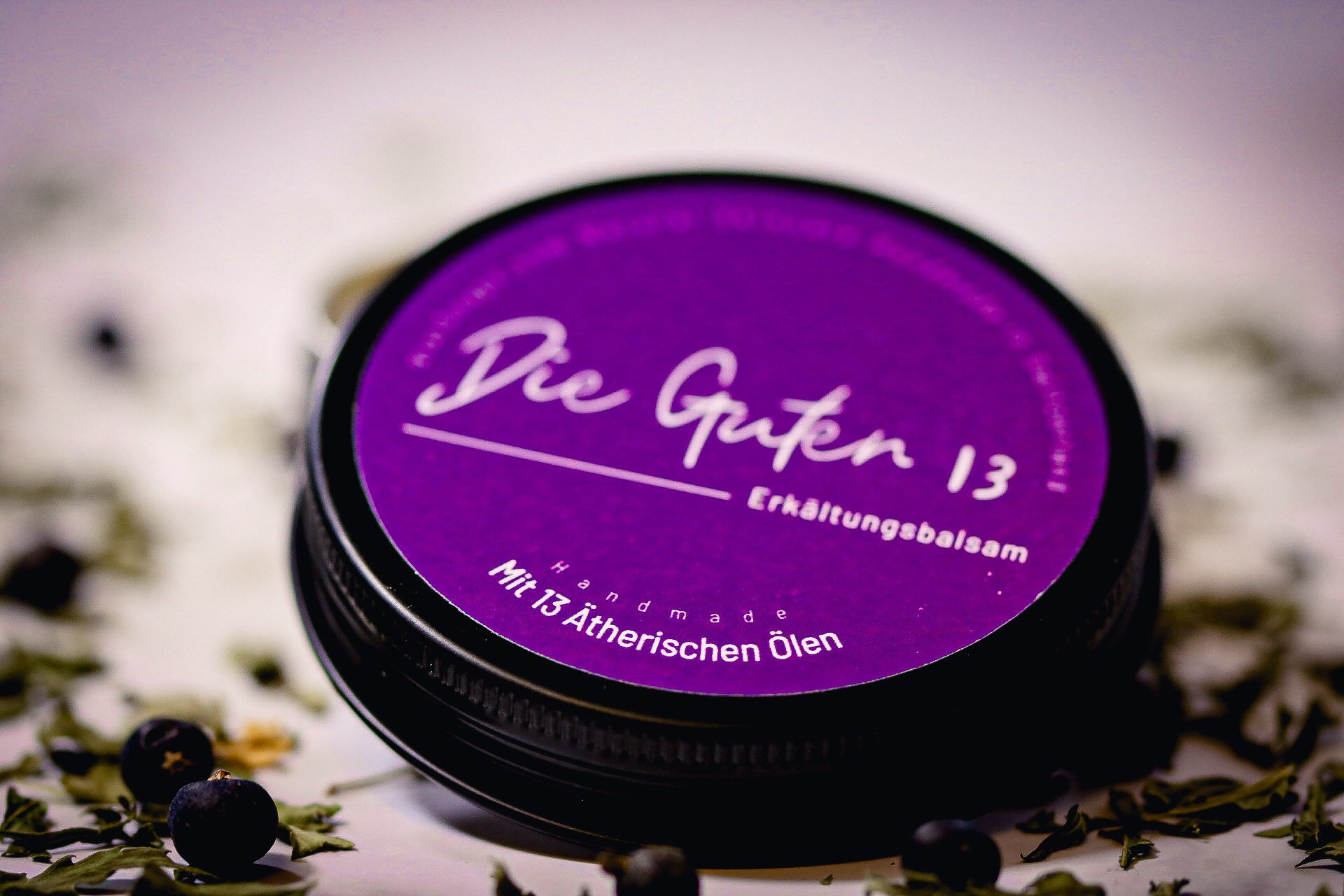
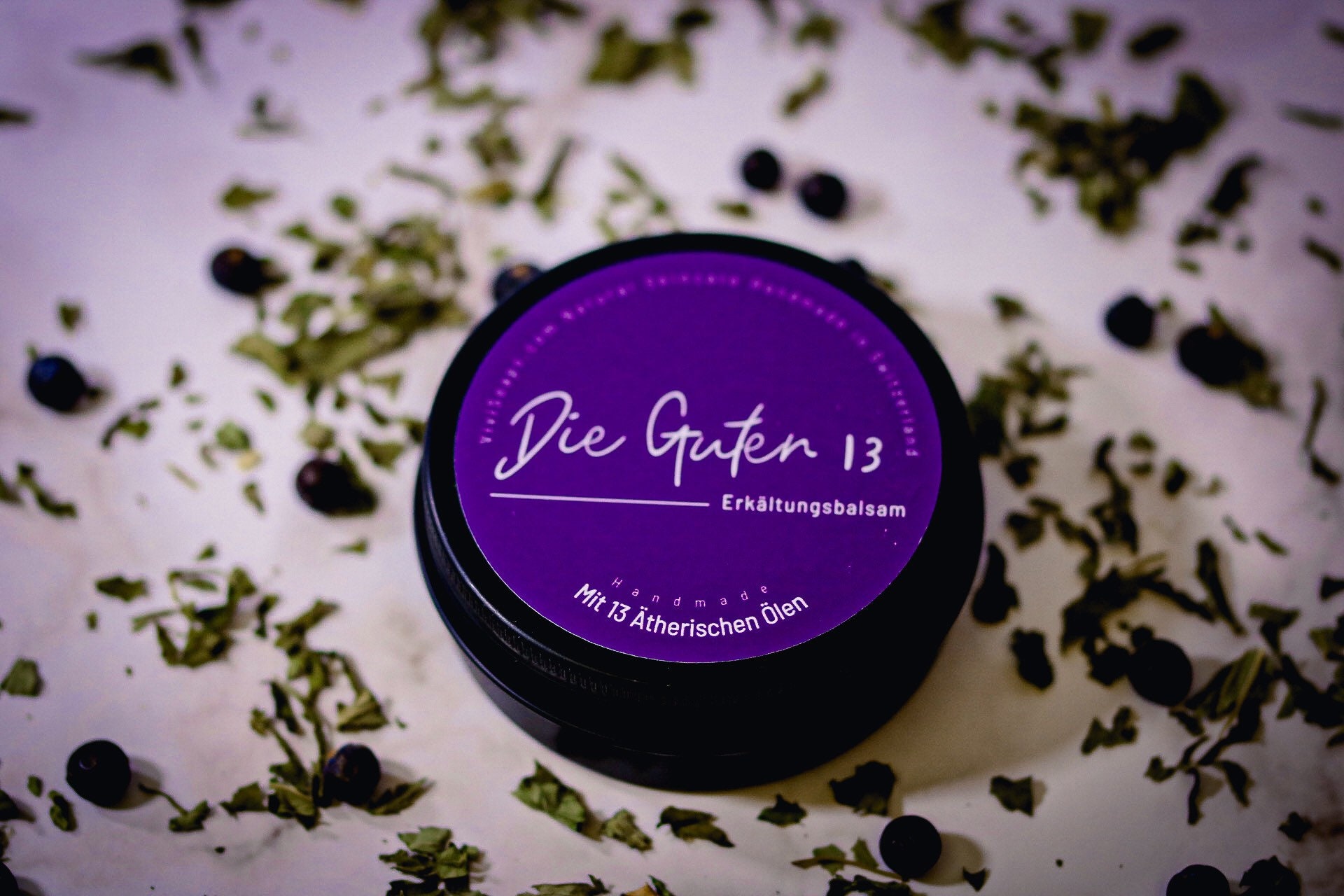
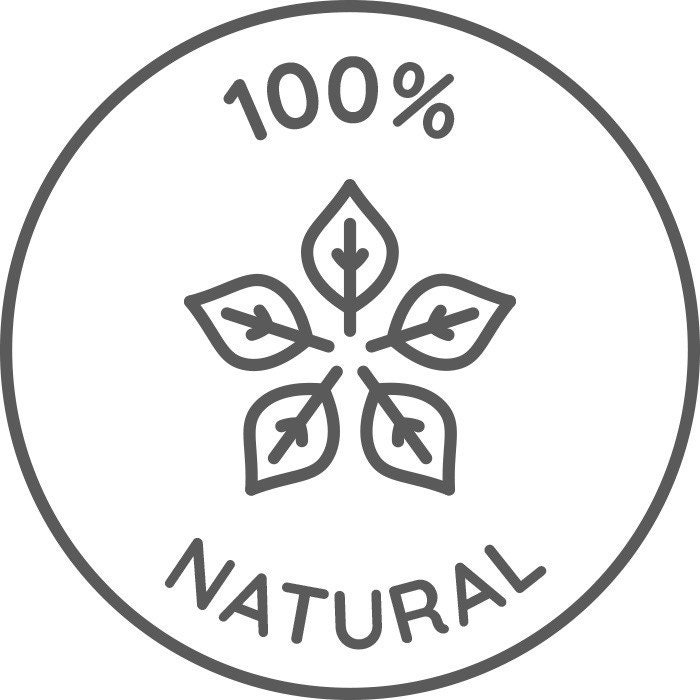
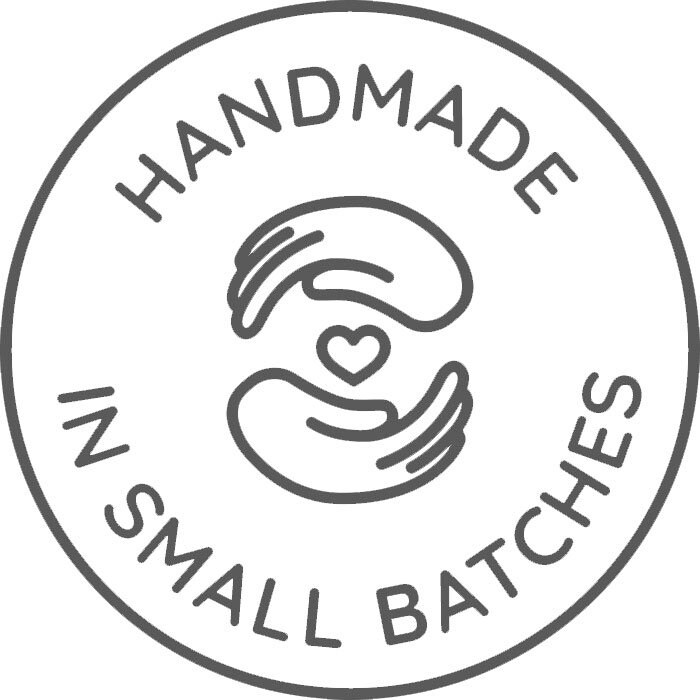
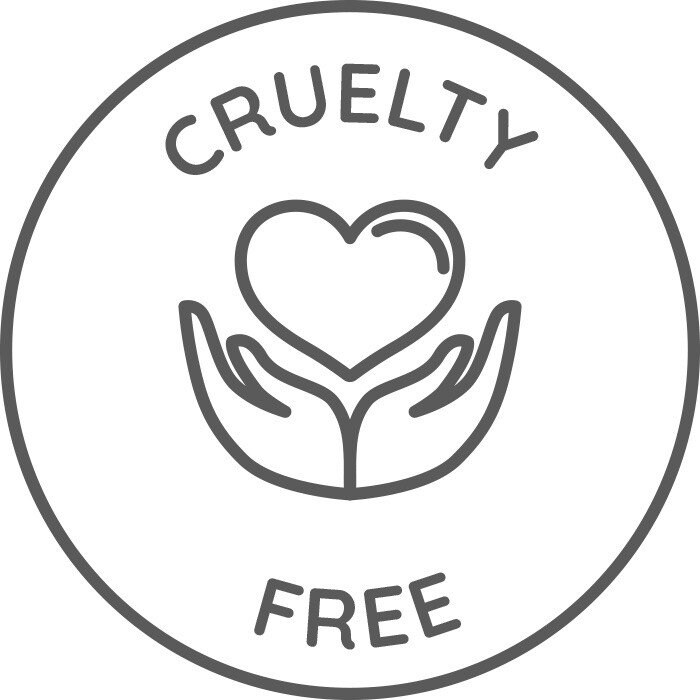
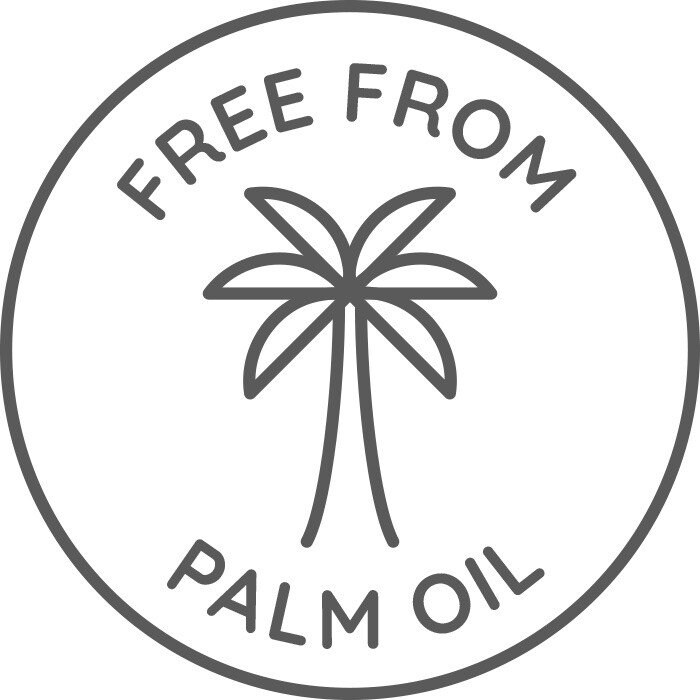
The Good 13 - Herbal Balm with 13 Essential Oils - Handmade Balm - Chest Ointment for Clear Breathing - Made in Switzerland
$19.58
(1)
-
DetailsThe Good 13
Herbal balm with 13 essential oils
My handmade balm consists of 13 essential oils: tea tree oil, bergamot oil, orange oil, cinnamon leaf oil, pine needle oil, clove oil, thyme oil, peppermint oil, spike lavender oil, patchouli oil, eucalyptus oil, lemon balm oil, and anise oil. It is applied externally in a natural way to relieve respiratory ailments such as colds, coughs, and bronchial catarrh.
This herbal balm for external use promotes blood circulation in the skin and creates a pleasant warming sensation on the treated areas. When rubbed in, the valuable essential oils are released and absorbed through the respiratory tract, thus also having a beneficial effect on mucus in the bronchial area. My herbal balm is preservative-free.
Application
For external use to improve well-being in cases of respiratory tract infections (such as uncomplicated rhinitis, hoarseness and uncomplicated bronchial catarrh).
Cold balm should not be applied to mucous membranes. Rinse hands thoroughly after use.
Ointment for use in adults and children aged 2 years and older. Once opened, the cold balm has a shelf life of 6 months. Perform a patch test before use to rule out allergies.
Vegan: No, contains beeswax and lanolin
Ingredients
Olive Oil (Olea Europaea Oil) Lanolin Wool Wax (Lanolin) Beeswax (Cera Alba) Essential Oils Blend The Good 13
Naturally occurring allergens in essential oil: Geraniol, Limonene, Linalool, Citral, Benzyl Alcohol, Eugenol, Isoeugenol, Farsenol, Benzyl Benzoate
Caution: For external use only. Avoid contact with eyes. Essential oils are not recommended for pregnant or breastfeeding women.
Each jar of my natural herbal balm is crafted with love and care to ensure a quality product that can complement your wellness routine. Please note that while our product includes information on traditional uses, it makes no medical claims. -
Shipping & Policies
Shipping from Switzerland
Processing time
1 business day
Customs and import taxes
Buyers are responsible for any customs and import taxes that may apply. I'm not responsible for delays due to customs.
Payment Options
Returns & Exchanges
I gladly accept returns, exchanges, and cancellations
Just contact me within: 14 days of delivery
Ship items back to me within: 30 days of delivery
- Custom or personalized orders
- Perishable products (like food or flowers)
- Digital downloads
- Intimate items (for health/hygiene reasons)
Conditions of return
Buyers are responsible for return shipping costs. If the item is not returned in its original condition, the buyer is responsible for any loss in value.
Questions about your order?
Please contact me if you have any problems with your order.
Privacy policy
Datenschutzerklärung von ViviSoaps by Team Viking GmbH
Unsere Datenschutzerklärung finden Sie hier: https://www.privacybee.io/v/cllkzlwm77715620vom836mdt0Frequently Asked Questions
Care instructions
Tips to extend the life of your soap
Place your soap in a bowl that will drain (not flat on the tile or in a non-draining bowl!) And make sure it doesn't get wet between uses. This is optional, but it will definitely help your soap last longerHow long do your soaps mature?
My soaps mature 4 to 6 weeks open on the shelf so that they can dry well. My pure olive oil soap needs to mature for at least 6 months or more.
What do you use titanium dioxide for?
I use titanium dioxide to lighten the soap, depending on the raw materials, the natural soap can be green, yellow or brown. In nature, titanium dioxide is widespread in the form of the minerals rutile and ilmenite (together with iron). Titanium dioxide is non-toxic and not harmful to water.
Which soap for extremely dry skin?
All of my natural soaps are suitable for dry skin. Milk soaps in particular are ideal for dry skin.
PH of soaps, don't they dry out the skin?
Definitely no. Natural soaps (please do not confuse them with industrial soaps) are always basic. The pH value is 8.5 - 10. This is absolutely harmless to our skin. Amniotic fluid. E.g. has a pH value of 8.5 and let's be honest, is there a more beautiful and softer skin than baby skin?
What is NaOH?
NaOH aka caustic soda or sodium hydroxide is an essential ingredient in soap production. Our lye is made from common table salt dissolved in water, and electrodes add electricity to the mixture, creating chloride, hydrogen and lye. This material has been used in natural soap production for centuries. When used correctly, it can help make safe natural products. However, according to European cosmetic laws, you will not find sodium hydroxide on our labels as it is not included in the end products.
Can children use natural soaps?
Yeah sure! Children in particular benefit from the mild cleaning and natural care
Custom and personalized orders
Yes, of course I can. Just contact me directly, then we can discuss it.
Do you also ship outside of Switzerland?
Yes, I also ship to other countries. Unfortunately, I can't offer this for free!
Customs duties and import fees may apply. Please check the legal requirements in your country.Where do your raw materials come from?
It is very different. Raw materials such as rapeseed oil, sunflower oil, hemp oil, goat and sheep milk, honey, herbs and plants come from Switzerland.
Well-known raw materials such as coconut oil, shea butter, babassu oil, olive oil, grape seed oil etc. are often very transparent and easily traceable (fair trade etc.) available from wholesalers in the respective country. I don't use palm oil.
I try to avoid other raw materials or to reduce their consumption. Often I have to rely on my feelings. Transparency is important to me so that I and my customers can decide yes or no. -
Reviews
Reviews (1)
Average:
Dec 14, 2024
I sent this as a gift and the person loved it. Nice gift wrap also! Thank you

